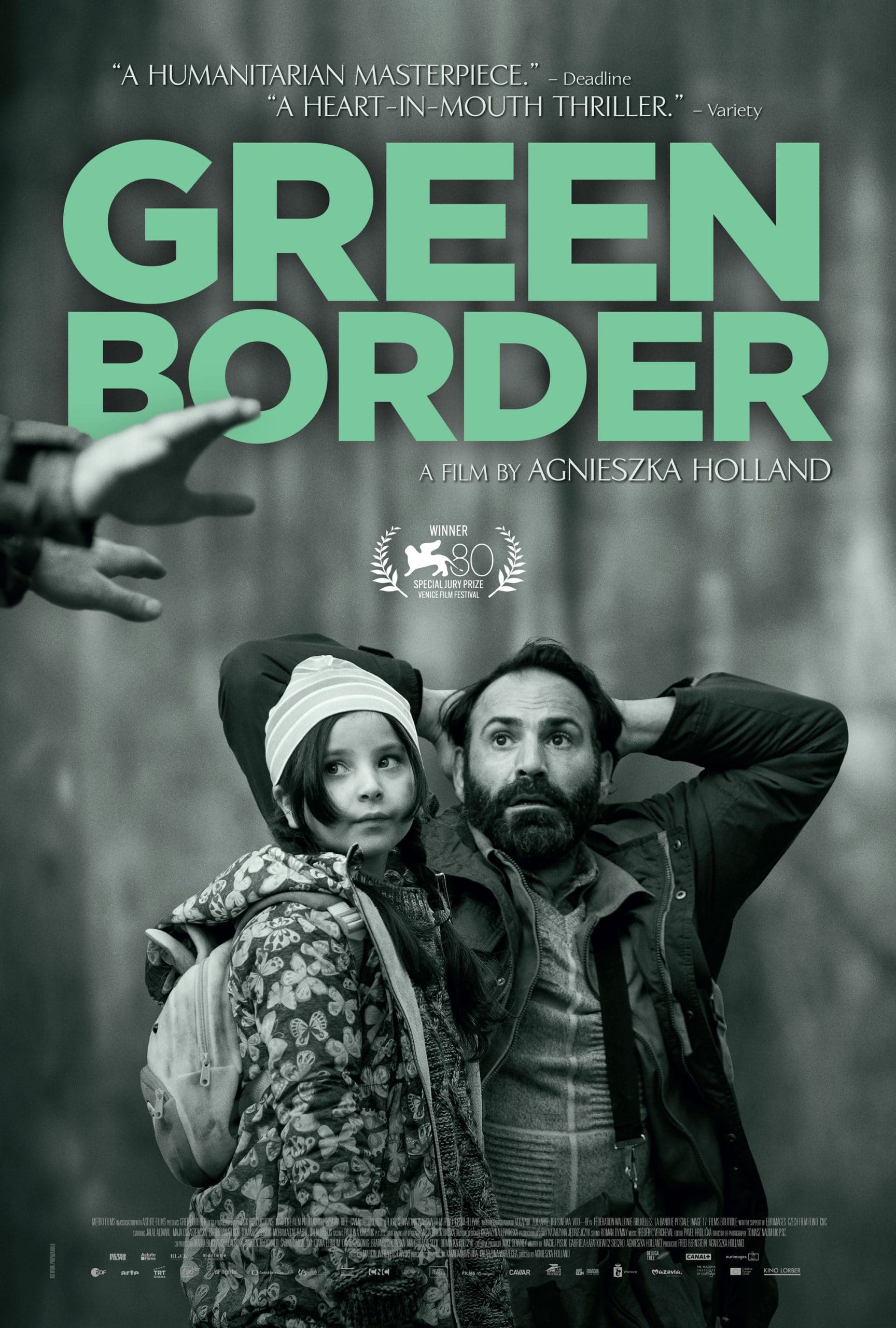
- Starring
- Jalal Altawil, Maja Ostaszewska, Behi Djanati Atai
- Writers
- Maciej Pisuk, Gabriela Lazarkiewicz, Agnieszka Holland
- Director
- Agnieszka Holland
- Rating
- n/a
- Running Time
- 152 minutes
- Release Date (US)
- June 21st, 2024 (limited)
- Release Date (CAN)
- June 28th, 2024 (limited)
Overall Score
Rating Summary
Cinema’s connection with politics goes back to its beginning. Going back to Sergei Eisenstein’s 1925 classic Strike, the camera holds its intrinsic function of providing images to sustain political debates. It is an element so crucial to public discourse that propaganda became a rudimentary aspect of the weaponry of armies in wars. Nowadays, it can provoke reflections on politics and actions that governments are taking. In this sense, veteran Polish director Agnieszka Holland brings Zielona Granica (or Green Border).
Set in October 2021, focuses on a Syrian family trying to enter the European Union through the Belarus-Poland border, otherwise known as the Green Border. That story is told from multiple perspectives from within the region and how it affects their lives, starting with the family itself, Bishir (Altawil), Amina (Dalia Naous), their three children, and Grandpa (Mohamad Al Rashi), Leila (Atai), and an Afghani woman who joined them while looking to escape the Taliban, Jan (Tomasz Włosok), a soon-to-be father border guard having moral issues with federal orders, and a group of activists led by Julia (Dalia Naous), an immigrant psychologist who decided to help those trying to cross the green border. Cinematographer Tomek Naumiuk’s black & white imagery paints a portrait of a timely issue. Adding an epilogue that highlights Ukrainian-Polish immigration policy, it shines an even brighter light on the cruelty faced by those crossing the Belarus border. Aleksandr Lukashenko inviting migrants to fly to Belarus and cross by land, was merely a means to provoke the European Union and asking them for a prompt response. However, Poland’s answered with an abrupt and harsh approach to those seeking political asylum by pushing them back into Belarusian territory.
Amidst the diplomatic conflict of Poland’s zero tolerance policy towards Russia and its allies and Belarus’ provocation of the EU, the film touches a lot of grey area. Among thousands of desperate people are desperate to survive, many found themselves abused by ISIS in the Middle East, such is the case of Bishir. In reality, Poland and Belarus did not care for the lives of those people either. Holland shows us how violent those two armies were and how they had orders to vanish the bodies found there. Hundreds of people died in what was basically a diplomatic armwrestling match. She also had no interest in nuances or lighting the impact, constantly looking for the shock value of the situation. Casting plenty of immigrant actors, it adds a further level truthfulness to Holland’s approach.
Not without its issues, Green Border, at times, loses itself among its various characters. Julia’s subplot is intriguing, but she is introduced far too late and is soon forgotten. However, her philosophy of leaving no immigrant behind is compelling to watch. Through the film’s main three storylines, each boast a considerable number of characters, its plot gets lost over the course of the film. While its middle lessens its overall impact, over time, Holland’s approach is not only repetitive but also suffocates audiences. That being said, the film’s final thirty minutes has an energy that rivals that of a 1980s spy thriller, which only adds to the experience. In spite of the numerous elements and plotlines bloating its narrative, it nonetheless delivers a thought-provoking experience.
In the end, Green Border may not be as impactful as it seeks to be, with pacing issues that make it feel bloated by the end, but it saw Agnieszka Holland draws a fascinating analysis of this complex issue that has not yet found a simple solution. With the film, she invites audiences to look beyond the two-sided discussion in this suffocating political drama.
still courtesy of Kino Lorber
If you liked this, please read our other reviews here and don’t forget to follow us on Twitter or Instagram or like us on Facebook.
Brazilian film writer. He is also a producer and executive producer for Zariah Filmes. Member of the International Film Society Critics Association (IFSCA), International Documentary Association (IDA), and Gotham and Media Film Institute.
Discover more from
Subscribe to get the latest posts sent to your email.
